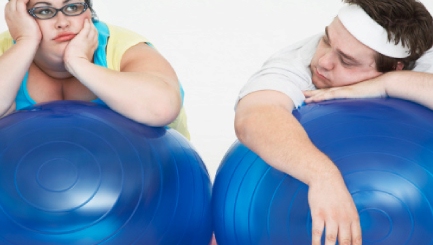Does Gender Affect Exercise Results When You’re Diabetic?
 Obesity is a rising concern in the West, as the wellbeing of many obese people is at risk to developing other complications, such as Type 2 diabetes and cardiovascular problems. In an attempt to improve the wellness outcomes of obese people with diabetes, many experts suggest a healthier diet and exercise programme, but according to researchers at the University of Missouri, this one-size-fits-all advice doesn’t produce the same benefits for men and women.
Obesity is a rising concern in the West, as the wellbeing of many obese people is at risk to developing other complications, such as Type 2 diabetes and cardiovascular problems. In an attempt to improve the wellness outcomes of obese people with diabetes, many experts suggest a healthier diet and exercise programme, but according to researchers at the University of Missouri, this one-size-fits-all advice doesn’t produce the same benefits for men and women.
The study showed that certain exercises that benefit obese men may not have the same positive results for obese women, and these findings could help health professionals and researchers develop targeted exercise interventions for obese women. According to Jill Kanaley, a professor in the Department of Nutrition and Exercise Physiology at MU, ‘Our results indicate gender may contribute to differences in cardiovascular function of obese individuals with Type 2 diabetes. Men saw improvement after aerobic exercise training, but the women did not experience the same benefits.’
For the study, the cardiovascular responses, such as heart rate and blood pressure, of 75 obese men and women with type 2 diabetes were monitored via an isometric handgrip test at the beginning and end of a structured, 16-week walking programme. This test involved continually and forcefully squeezing an object for a few minutes. Kanaley said, ‘What this research highlights, at least using the handgrip test, is that the advantages we think exercise is going to give individuals may not be the same across genders, particularly for those who have Type 2 diabetes’.
She continued, ‘This is a concern because there are high mortality rates with Type 2 diabetes, especially for women. We’re trying to find successful interventions to help these individuals, and we keep assuming that exercise will do the trick – we think when we tell people to “go train,” regardless of gender, everyone will get the same results. Our research indicates certain exercises may not be enough for women, as our walking program did not show positive improvements for them.’
Kanaley therefore advised that obese women with Type 2 diabetes might benefit from longer durations or higher intensities of exercise, and a change in focus on how cardiovascular function is measured: ‘A lot of people focus on how high individuals’ heart rates get during exercise, but their recovery rates also should be monitored. When you exercise, you want your blood pressure to rise, but you don’t want it to get too high. Your blood pressure should return to normal relatively quickly after you stop exercise. In our study, the recovery rate for women was not as rapid as for men. After the men trained, they got an even better recovery time, whereas women’s time stayed about the same.’


Comments are closed.